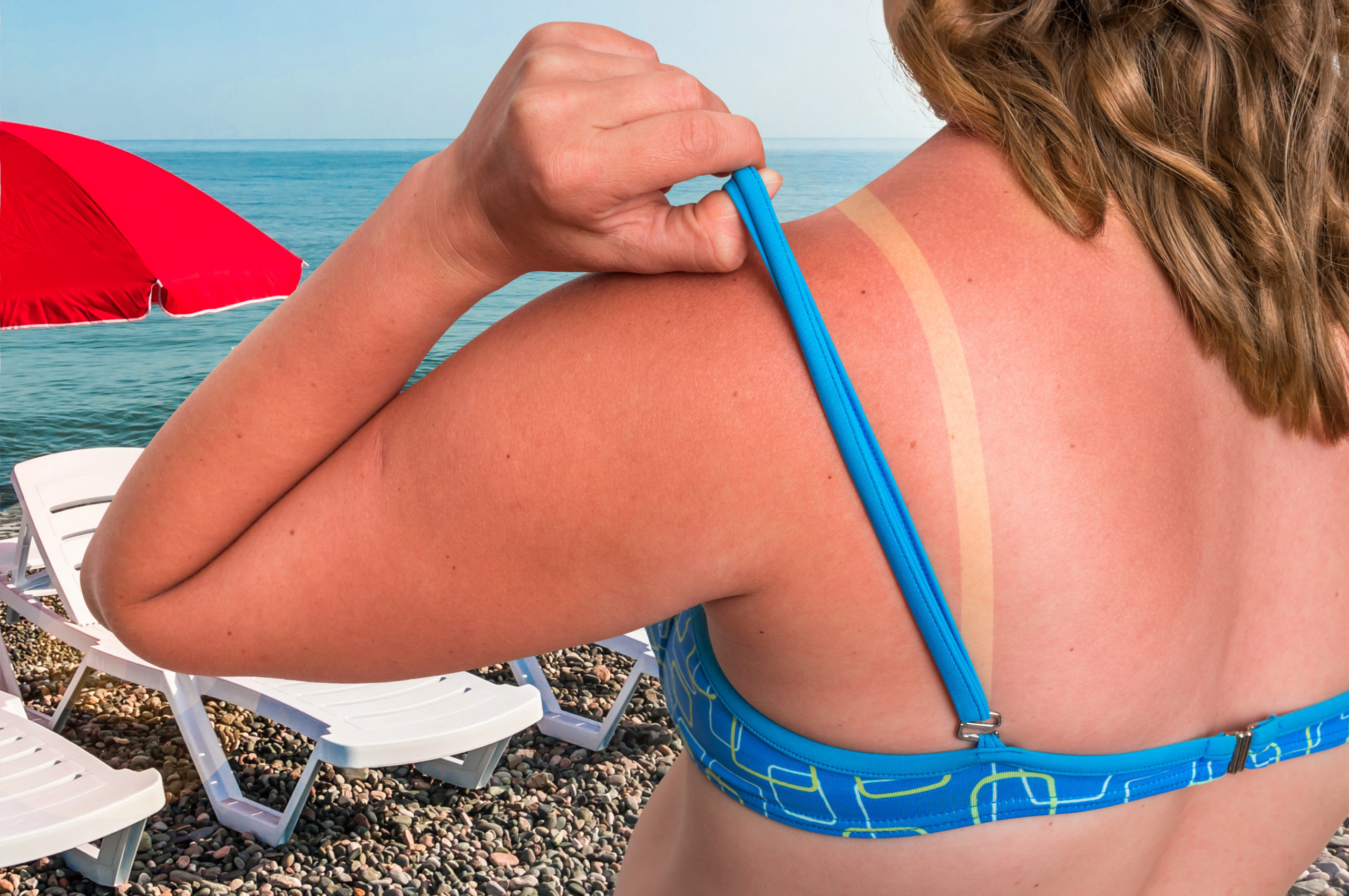
If the sun has gotten the best of your skin, here’s how to soothe the burn.
“Sunburns can lead to skin cancers and premature aging. To avoid having a sunburn, remember to apply a sunscreen with an SPF of at least a 30 and water resistant for up to 80 minutes. It’s important to reapply every 2 hours, especially when in the water. Apply liberally. Sunscreen is not 100% effective, therefore wearing a wide brimmed hat and protective clothing is helpful, as is seeking shade when possible.”
Do you look and feel like a lobster after a day of fun in the sun? Even though you know the importance of sun protection, it’s too late for that. Now you just have to figure out how to soothe your red, warm, tingling and itchy skin.
It’s important to remember to take steps in order to prevent sunburn, such as wearing sunscreen with a high SPF, keeping our bodies covered and staying out of the sun when it’s at its strongest (between the hours of 10AM and 4PM), but if you do end up with a sunburn, here are 9 tips to relieve the pain:
- Cool skin off. To ease the pain and inflammation of a sunburn, take a cool shower or bath. Or use a cool compress in areas where you need relief. Don’t make the water too cold, though. Avoid hot water, including hot tubs, which can make skin feel worse.
- Pat, don’t rub. When you get out of a pool or shower, gently pat your skin dry. Don’t rub sensitive skin.
- Moisturize, moisturize, moisturize. Sunburns dry out your skin, so keeping skin moisturized helps ease tightness, itching and peeling. The best time to moisturize is right after you get out of the shower, while your skin is still a little damp. Products with aloe vera feel soothing, but are not necessary. Use a vasaline to help sooth your skin or any blisters. Make sure not to use an antibiotic cream if any blisters are open.
- Take pain relievers if necessary. If you are very uncomfortable, over-the-counter pain relievers like acetaminophen or ibuprofen may help ease pain and inflammation.
- Drink lots of water. Getting sunburned means you’ve spent too much time out in the sun, which can also cause you to be dehydrated. Rehydrate by drinking plenty of water (avoid sugary, caffeinated or alcoholic drinks).
- Don’t break blisters. If you have any blisters, leave them alone. Opening them increases the chance of infection. If blisters open on their own, wash the area gently with soap and water, apply antibiotic cream and cover with a non-stick gauze bandage.
- Stay out of the sun. If your skin is already burned, take extra precautions while it heals to not add insult to injury by exposing it to more sun.
- Watch for signs of severe sunburn. If you experience severe pain, chills, nausea, headache, fever or large areas of blistering skin, or if your skin looks white or feels numb, call your doctor. In some cases, you may need medical treatment.
- Vow to be more vigilant next time. Getting too much sun can cause lasting damage to your skin and increases your risk of skin cancer. While you’re experiencing the effects of a painful sunburn, it’s a great time to remember that taking steps to avoid another one can spare you a repeat performance of how you’re feeling and will keep your skin healthier.
Copyright 2022 © Baldwin Publishing, Inc. All rights reserved.
Health eCooking® is a registered trademark of Baldwin Publishing, Inc. Cook eKitchen™ is a designated trademark of Baldwin Publishing, Inc. Any duplication or distribution of the information contained herein without the express approval of Baldwin Publishing, Inc. is strictly prohibited.
Date Last Reviewed: June 17, 2022
Editorial Review: Andrea Cohen, Editorial Director, Baldwin Publishing, Inc. Contact Editor
Medical Review: Perry Pitkow, MD
Learn more about Baldwin Publishing Inc. editorial policy, privacy policy, ADA compliance and sponsorship policy.
No information provided by Baldwin Publishing, Inc. in any article is a substitute for medical advice or treatment for any medical condition. Baldwin Publishing, Inc. strongly suggests that you use this information in consultation with your doctor or other health professional. Use or viewing of any Baldwin Publishing, Inc. article signifies your understanding and agreement to the disclaimer and acceptance of these terms of use.